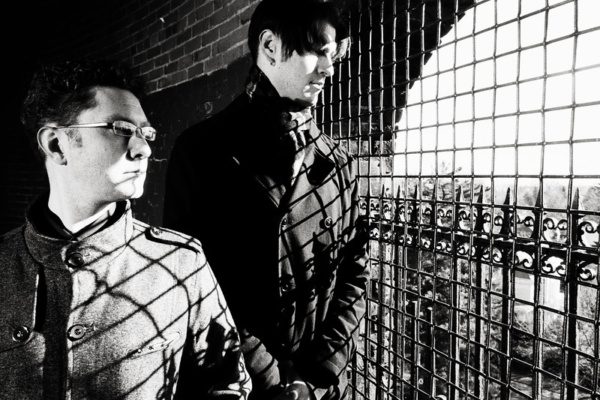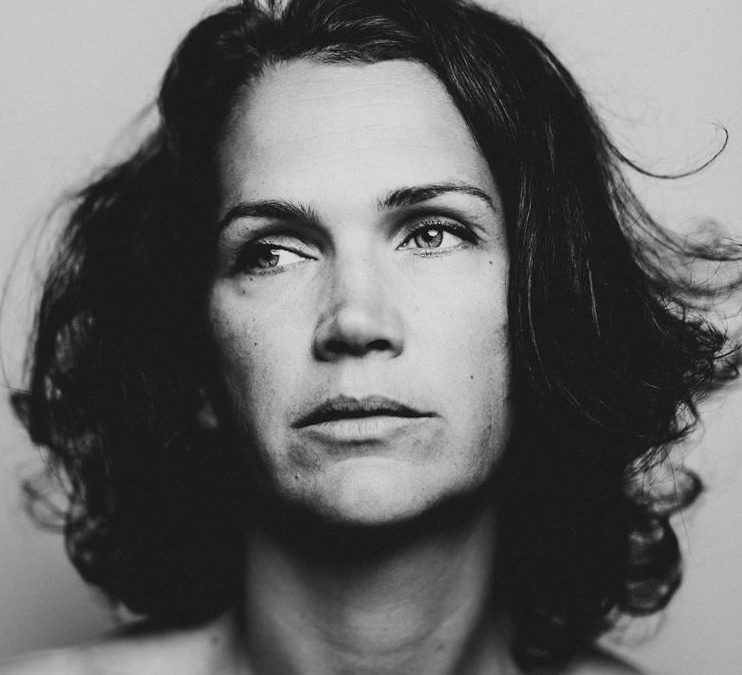
by Meredith Schneider | Jun 12, 2018 | Uncategorized
Seattle-based shoegaze/post-punk/dream rock collective Nostalgist – comprised of Asa Eisenhardt and his cohorts in music – has been dazzling crowds since 2012 and, with the release of new music and their journey only gets brighter from here. March’s Disaffection gave us even more reason to keep our eyes peeled for live performances, its raw sound and instrumentals often giving us chills.
Check out the new album in its entirety below, as well as a quick interview with frontman Asa Eisenhardt about it all.
While writing music, has there ever been a time where you have experienced a severe case of writer’s block? How did you resolve it?
Yeah, constantly. If I have enough time I’ll just try to play through it as best I can– let my mind wander and hope for the best. I might also try working from a basic theory concept as well, like chord inversions, where relevant. In the bigger picture, as with most songwriters, I just make sure to write down and/or record whatever idea I’m working on as it might click into place at a later point. This question has reminded me to consult Eno’s Oblique Strategies cards more often.
During your time as an artist, have you been able to accomplish your goals or are you still working towards them?
Ideally, in my mind, it’s both: taking stock of and expressing gratitude for one’s opportunities and accomplishments while also keeping steady sights on the proverbial road and goals ahead.
When you are touring and performing on different stages, how do you pass the time?
We’ve only done one tour, which was down the West Coast about 3 years ago. In transit, time was passed with pretty standard stuff like conversation and listening to music. During venue downtime, I’m usually doing vocal warmups and/or trying to get in a good headspace.
Apart from music, what would you say your true passion is?
I have a number of other interests, but music is absolutely my true passion.
What can your current and future fans expect from you before the end of the year? Is there any exciting news that you can share with us?
I’m slowly figuring out a remix release. One of them is finished, a few others are in a nebulous state and some are still yet to be determined. These will be complete reinventions using the componentry of a certain track on our new MLP. I’ve also acquired multitrack audio from our record show for a possible live album of some manner, but haven’t listened back in a proper studio environment yet.
Performance-wise, we’re playing two local shows this summer — a serious goth banger on July 5th with Nox Novacula (Seattle goth ‘n’ roll that’s taken the city by force in just a handful of months) and Twin Tribes (synthy jams, on tour from New Jersey). The other one is August 2nd and we’ll be revealing more about that one as the date approaches.
Is there one thing that inspires your music, or is there a wide variety of things that help you come up with the lyrics and accompanying music?
I’ve taken to the phrase “love and lack thereof” as being the central inspiration/subject matter. Film always plays a role as well, usually in how I mentally envision the imagery I’m trying to capture with words or atmosphere. In the first few years, that always meant classic noir, but I’ve branched out a bit. Really, it’s anything I can aesthetically repurpose. For instance, the cover still of our new record comes from L’Avventura. I stumbled across it on the internet and the vibe I got from it, along with the water imagery capturing an identical and ubiquitous lyrical element I often refer to, was so immediately perfect for these songs. While I enjoyed the film, I found it to be a bit different than what I was expecting. Presented alone, however I still love what the image does.
Additionally, I do have clinical depression, and while I am almost always a happy, goofy individual, things can sometimes be difficult. Once I bounce back from these periods and have time to reflect, I can often lyrically channel those feelings in a healthy way. I’m definitely drawing on my own experiences and filtering them through the aesthetics and influences I hold near and dear, but I also try to keep things just vague enough so other people can relate or maybe project them onto the song to their own cathartic end.
Has there been anyone in particular that has helped get you to where you are today?
Broadly speaking, I’d say a large number of people have, including past and present bandmates, my encouraging parents, and so forth. But to be more specific, in terms of magnitude, Evan Foster’s mentorship from both a musical and production standpoint has been unquantifiably beneficial– without him, this band would be nothing. Similarly, all four members of Agalloch were supportive from the getgo, not least of which Aesop. His guest drumming on the new record put some serious fire underneath the songs, and set a standard for the future.
Keep up with Nostalgist here.

by Meredith Schneider | Mar 7, 2018 | 5 to 7, premieres, wolf tracks
We’ve been inundated with a little too much fluff lately. And, while we’re all about being happy and upbeat and feeling free, sometimes you need to slow it down and enjoy a good song for what it is: emotional, dark, intense, and equally as freeing. This is the feeling you get from the first chords of Nathaniel Bellows‘ new track “To Wait”, which finds its exclusive streaming premiere right here, right now. As the song progresses, a dark and beautiful love affair brims within its lines for those who happen upon it.
If nothing else, this track reminds you that patience – even when you’re waiting for dissonance in instrumentals and the next line of a brand new song – is a damn virtue.
We caught up with Nathaniel himself briefly before the release of this new track to talk shop. Check out our words below!
How is your new LP, Swan and Wolf, different from your previous album?
With Swan and Wolf, I left the city and went up to Maine to record all the vocals and guitar tracks by myself. Being in that secluded environment, I was able to spend more time organizing, layering, and experimenting with how the background vocals interacted with the main vocal, which ultimately—hopefully—gives the songs greater emotional texture and depth. Another main difference is that, with Swan and Wolf, I worked closely with a mixer, Brian Losch, who really understood the mood and tone I was looking for, and which resulted in a more cohesive, consistent overall sound.
While The Old Illusions featured two of my drawings as part of the CD booklet, Swan and Wolf incorporates more of my visual art: I created ten illustrations that correspond to each of the ten songs on the record, which are available to view on the album’s website, and in a limited edition hardcover book that I produced as a companion to the music.
How would you describe the sound of Swan and Wolf?
As with The Old Illusions, I was looking for a very direct, spare, open-room sound, but this time, with a more polished, professional sheen. There aren’t that many elements in these songs, but I was eager to have each component sit within the mix in an organic, but ordered way. Overall, I wanted the sound to be clean and immediate, with a slight tinge of rawness, and the distinct presence of human imperfection.
Where do you find the inspiration to write?
I grew up in rural environments, so I’ve always been very inspired by the natural world. I live in New York City now and have written most of my music here, so maybe there’s something to the urban landscape that particularly inspires this work—perhaps the pervasive, invisible rhythms of the city? I’m not sure, but it’s definitely given me a lot to write/sing about (much to the dismay of my neighbors, I think!).
You are a poet, a novelist, a visual artist, and a musician. What got you into doing music?
Playing and studying music has always run alongside the other disciplines that I work in. I took piano lessons for 11 years when I was young, and I picked up the guitar when I went to college. I started writing songs around the time I finished college and went to graduate school as a way to explore a different approach to poetry, which I was mainly writing at the time. Ever since then, songwriting has slotted in among my other artistic pursuits in a pretty seamless and satisfying way.
How do you differentiate yourself from your music and your writing?
There is a definite overlap in my music and my writing. But with the songs, I tend to include more vernacular language than I would in a poem—the rhyming is more forceful and structured, and there’s a more deliberate symmetry in a song’s verses and choruses, which are choices I don’t employ so overtly in my poetry. Sometimes I use quotations in the songs in a way I might when writing fiction, but the songs tend to be blurry, abstract meditations on emotion, memories, events or images, so I don’t feel any need to crystalize these spoken scraps into something more narratively realized, the way I do when writing a short story or a novel. In all my work, I aim for clarity, specificity, and vividness, but with songwriting, I like to explore the tension between exactitude and ambiguity.
What was the inspiration behind your first single, “Keep in Mind”?
It takes me a long time to write songs, because they evolve as a slow accrual of ideas, generated in fits and starts, over months and sometimes years. I’m also unable to write lyrics in the absence of the guitar—the lyrics and music tend to evolve in tandem. I practice a lot and record drafts of the songs on my phone, and walk around listening to them to try to figure out what the music is attempting to evoke and express. It can take a while. Given all of this, it’s a little hard to pinpoint what the inspiration is for any one song, except that they usually begin with a central image or phrase, around which the song slowly congeals. In the case of “Keep in Mind,” I think it was the image of the seabirds mentioned in the second verse—the idea that they have an innate sense of where they are headed, how they are meant to live, all in their own mysterious and unknowable ways.
What is next for your career?
I am looking forward to playing these songs live in the upcoming months, after the release. I have also been working on a new novel—a contemporary ghost story set on a small island off the coast of Maine—and I’m in the process of finishing my second collection of poetry.
I frequently collaborate with the composer Sarah Kirkland Snider—our first record, Unremembered, a song cycle for 7 voices, chamber orchestra, and electronics, based on 13 of my poems and illustrations—came out in 2015. We are now working on a Mass for Trinity Wall Street, about endangered animals and the environment, which premieres this spring, and we’ve also begun work on an opera.
___
Keep up with Nathaniel here!

by Veronica DeFeo | Feb 28, 2018 | 5 to 7
Amsterdam based singer-songwriter VanWyck (irl Christine Oele) dropped her album, An Average Woman, in January of 2018. The LP features not only the insane talent of VanWyck, but the accompanying vocals of Marjolein van der Klauw and bass player/arranger Reyer Zwart. Having a widespread musical background ranging from classical piano to jazz-dance to rap and hip hop, VanWyck released An Average Woman as an answer to her own longings to share an authentic and creative thoughts on women today through a musical canvas. Her songs bring on chills as the listener delves into the all-encompassing soundscape of the album.
We were lucky enough to catch up with VanWyck to discuss her latest album, thoughts, and message.
The title of your album, An Average Woman, instantly caught my attention. How’d you come up with the name?
I wrote the song – that is the title track – a while back. It was during my one song a week project, where I tried to write and record one song every week for a year. I instantly knew it was a strong song, but also a difficult one to record properly, so I kept it for myself until the recording of the album. In a way it is a response to the way our media celebrates success in terms of uniqueness and individualism. I was so tired from the bombardment of perfect superwoman everyday, all the time. Sometimes it feels like only perfect women are allowed to be visible and to have a voice. There is so much pressure on women to be a certain kind of way and it so hard to rid yourself of that pressure, to find your own voice and your own values. It’s almost impossible. But in a way that was my assignment for this album.
What do you want to be the biggest takeaway from your music for your female listeners?
Maybe I hope for two things – one is that they feel supported in allowing themselves to be who they are – to free themselves from the pressures of having to be every woman, or to live up to certain ideals. That they find the strength to seek out their own ideals.
Next to that I hope they enjoy the magic and enchantment that I felt when I wrote these songs. After a lot of struggle and hard work I’ve come to the conclusion that there is this pool of infinite joy and creativity inside all of us – that we can always tap into that, but that we are often sidetracked by all the humdrum of modern life and obligations. I really think that inside each of us there is this river of knowledge and strength – we just need to find ways to tap into it.
Listening to tracks like “Red River Girl” gives me chills – how do you pack so much emotion into a few minutes of song?
Well “Red River Girl” was a very special writing process for me too. It really felt like someone else was writing the song. That I just had to let it wander through me. I think the subconscious really plays a big role in songwriting and the better you become at surrendering yourself to it – the stronger the songs will be that you find there. I think for this song I surrendered myself completely and maybe that is what you feel as well.
What’s your favorite view or landscape?
Anything wild and free will do. But I live in The Netherlands and we have hardly any wild and free left. It’s mostly cities and cultured grounds here – so sometimes I really have to free myself from that. Luckily we do have an amazing sea here with beautiful beaches and dunes and I try to travel to mountainous areas whenever I can.
The music video for “An Average Woman” is so beautiful! Where did the inspiration for it come from?
Thank you! I was very lucky to have met the artist and photographer Koen Hauser who directed the video. He was so moved by a song on my first EP that we got in touch. I was also very moved by his work and I guess there was this instinctive feeling between us that our work is connected in some ways. Like it deals with the same sort of themes. He also had strong opinions about how social media makes so many people feel like they are not good enough. So we decided to make a video with as many normal everyday woman we could find and to just let them be.
Where’s the best place to create music?
I can do it almost anywhere! As long as I have a guitar – but getting away from other people and noises is always good. I sometimes need some sort of silence and calm to be able to better hear all the voices in my head. But then again sometimes it’s the excitement of new experiences and new people that bring on new ideas.
If you could describe your music in a single word to someone who’s never listened to you, what would that word be?
Moving?
___
Keep up with VanWyck: Website I Facebook I Twitter I Soundcloud I Spotify I Bandcamp



